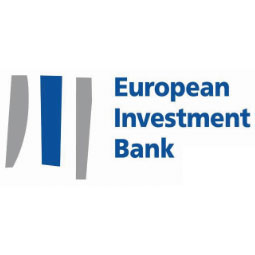[vc_row][vc_column width=”1/2″][vc_column_text]
Bulgaria
Bulgaria was the 72nd largest economy in the world by nominal GDP in 2018. GDP per capita is $9,273 USD. It is a small and open economy with trade at 128 percent of GDP. It is situated in the Balkans with key ports on the Black Sea. It is a member of the EU. Services was the largest economic sector in 2018 (60 percent of GDP), followed by manufacturing (14.4 percent), and agriculture (3.65 percent). In 2017, the largest export sectors were services (21.48 percent), agriculture (13.74 percent), metals (13.7 percent), and minerals (9.2 percent). The largest individual exports were travel and tourism (9.9 percent), ICT services (6.3 percent), refined petroleum (5.4 percent), and transport services (4.97 percent). Its largest export partners were Germany (12.6 percent), Italy (8.2 percent), Turkey (8.6 percent), Romania (7.3 percent), and Greece (5.7 percent). The largest goods imports were copper (7.6 percent), crude oil (6.64 percent), cars (3.6 percent), and medicaments packaged (3 percent). Bulgaria gained independence from the Ottomans in 1878 with Russian help. Under communism, Bulgaria transformed from an agricultural economy to an industrial and urban economy benefitting from Soviet trade and aid. However, once industrialisation was achieved, further productivity growth proved difficult. After the end of communism, and the disbanding of Comecon in 1991, Bulgaria progressed slowly, but FDI increased after Bulgaria joined the WTO in 1996, and again after Bulgaria joined the EU in 2007. Increased privatisations also helped to spur growth. From 2000 through 2008, Bulgaria grew at a rate of over 6 percent. The global financial crisis led to a deep recession in 2009 with growth recovering to a slower rate post-crisis. Strong domestic demand, increased exports, and EU development funds has seen an increase in growth since 2015. Reducing structural unemployment and increasing productivity would unlock new growth. Reducing corruption would also encourage further investment.
[/vc_column_text][vc_column_text] Its population in 2018 was 7,036,848 [1]
Its population in 2018 was 7,036,848 [1]
 In 2015, 17.65% of its total energy
In 2015, 17.65% of its total energy
consumption was renewable [2]
 In 2021, its GDP grew by 4.18% [2]
In 2021, its GDP grew by 4.18% [2]
 In 2021 it had a negative Current
In 2021 it had a negative Current
Account Balance of US$bn 1.63 [3]
 Its unemployment rate in 2021 was 5.30% [3]
Its unemployment rate in 2021 was 5.30% [3]
 Its Expenditure on R&D (as a percentage of
Its Expenditure on R&D (as a percentage of
GDP) in 2020 was 0.85% [2]
What free trade areas or economic unions is it a member of?
Member of the European Union (EU) since 01/01/2007
Other members:
Austria, Belgium, Croatia, Cyprus, Czechia, Denmark, Estonia, Finland, France, Germany, Greece, Hungary, Ireland, Italy, Latvia, Lithuania, Luxembourg, Malta, Netherlands, Poland, Portugal, Romania, Slovakia, Slovenia, Spain, Sweden
What trade deals are there between European Union and other countries and economic unions?
EU - Andorra Customs Union (from 01/01/1991)
European Single Market (SM) (from 01/01/1993)
EU - Sri-Lanka Co-operation and Partnership Agreement (from 01/04/1995)
EU - Türkiye Customs Union (from 31/12/1995)
EU - Faroe Islands Agreement (from 01/01/1997)
EU - Palestinian Authority Interim Association Agreement (from 01/07/1997)
EU - Tunisia Association Agreement (from 01/03/1998)
EU - Armenia Partnership and Cooperation Agreement (from 09/09/1999)
EU - Morocco Association Agreement (from 01/03/2000)
EU - Israel Association Agreement (from 01/06/2000)
EU - Mexico Global Agreement (from 01/10/2000)
EU - San Marino Customs Union (from 01/04/2002)
EU - Jordan Association Agreement (from 01/05/2002)
EU - North Macedonia Stabilisation and Association Agreement (from 01/04/2004)
EU - Pakistan Co-operation agreement (from 29/04/2004)
EU - Egypt Association Agreement (from 01/06/2004)
EU - Chile Association Agreement and Additional Protocol (from 01/03/2005)
EU - Algeria Association Agreement (from 01/09/2005)
EU - Lebanon Association Agreement (from 01/04/2006)
EU - Albania Stabilisation and Association Agreement (from 01/04/2009)
EU - Pacific States Interim EPA (from 20/12/2009)
EU - Montenegro Stabilisation and Association Agreement (from 01/05/2010)
EU - Central America Association Agreement (from 01/08/2013)
EU - Serbia Stabilisation and Association Agreement (from 01/09/2013)
EU - Bosnia and Herzegovina Stabilisation and Association Agreement (from 01/06/2015)
EU - South Korea Free Trade Agreement (from 01/07/2015)
EU - Kosovo Stabilisation and Association Agreement (from 01/04/2016)
EU - Georgia Association Agreement (from 01/07/2016)
EU - Moldova Association Agreement (from 01/07/2016)
EU - Canada Comprehensive Economic and Trade Agreement (CETA) (from 21/09/2017)
EU - Eswatini (SADC) Economic Partnership Agreement (from 05/02/2018)
EU - Lesotho (SADC) Economic Partnership Agreement (from 05/02/2018)
EU - Mozambique (SADC) Economic Partnership Agreement (from 05/02/2018)
EU - Namibia (SADC) Economic Partnership Agreement (from 05/02/2018)
EU - South Africa Economic Partnership Agreement (from 05/02/2018)
EU - Botswana (SADC) Economic Partnership Agreement (from 05/02/2018)
EU - Japan Economic Partnership Agreement (from 01/02/2019)
EU - Eastern and Southern Africa States free trade agreement (from 07/02/2019)
UK - EU Trade Deal (from 01/01/2021)
Member of the Organization of the Black Sea Economic Cooperation (BSEC) since 05/06/1998
Other members:
Albania, Armenia, Azerbaijan, Georgia, Greece, Republic of Moldova, Romania, Russian Federation, Serbia, Türkiye, Ukraine
What trade deals are there between Organization of the Black Sea Economic Cooperation and other countries and economic unions?
None
[/vc_column_text][vc_column_text]What trade deals are there with other countries and economic unions?
None
[/vc_column_text][/vc_column][vc_column width=”1/2″][vc_column_text]Germany: Immigrant Workers Benefit Economy
Working Together to Boost Innovation in Central Europe and the Baltics
United Kingdom – Splitting Rage Takes Root
Bracing for Climate Change: Managing the Unavoidable and Avoiding the Unmanageable
European Investment Bank: “Vienna Initiative” Keeps Credit Flowing
European Investment Fund (EIF): EUR 180m of Loans for Microbusinesses Across Europe Under Progress Microfinance
World Bank Group: Create Jobs by Focusing Industries to be Competitive
Trade with the United Kingdom
Source: UK Office for National Statistics, October 2022.
Contains public sector information licensed under the Open Government Licence v3.0.
Loading, Please Wait!
This may take a second or two.






















































































